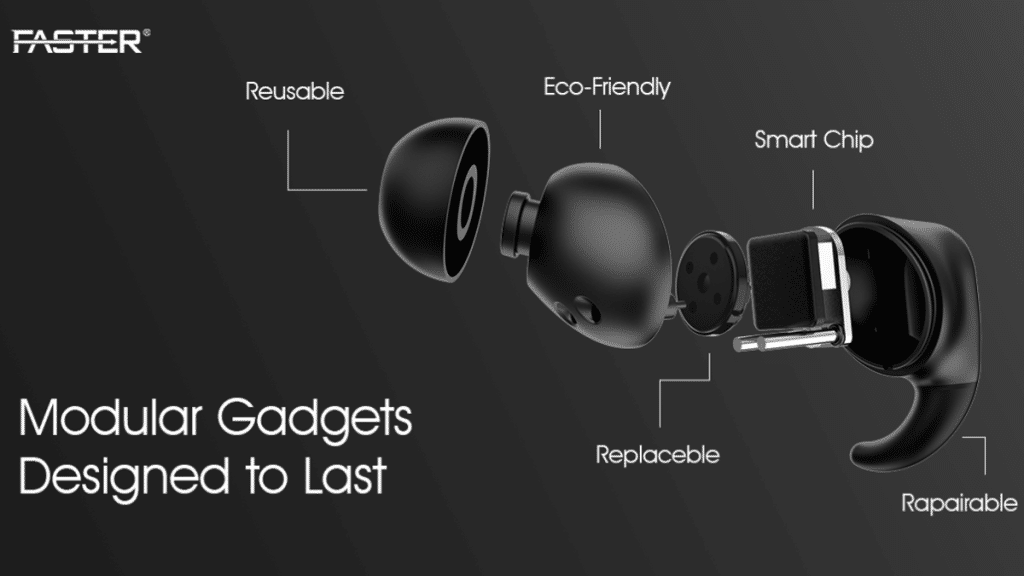In a world driven by fast innovation and even faster product cycles, tech devices have become disposable by design. Phones that fail after two years. Laptops you can’t open. Batteries you can’t change. It’s a cycle of constant replacement that drains wallets and dumps millions of tons of e-waste into the environment every year.
But a quiet shift is underway. Modular gadgets, designed to be repairable, upgradeable, and adaptable, are disrupting this norm. These devices don’t just last longer; they give users more control, reduce environmental impact, and challenge the business model of built-in obsolescence.
The Problem: Built to Break
Most mainstream tech isn’t designed to last. Devices are sealed shut with glue, packed with proprietary parts, and run on software that outpaces the hardware within just a few years.
1. Planned Obsolescence
Whether it’s non-removable batteries or soldered memory, modern devices often force full replacements when a single component fails. This isn’t an accident, it’s a business model.
2. Environmental Cost
Every year, over 50 million tons of electronic waste are generated globally. A significant portion comes from discarded phones, tablets, and wearables. This throwaway culture puts pressure on global resources and intensifies environmental degradation.
3. Consumer Frustration
Consumers are growing tired of spending top dollar on products that don’t last. Many are now turning toward brands and ecosystems that offer long-term usability, easier upgrades, and better sustainability.
What Are Modular Gadgets?
Modular gadgets break away from this cycle. They’re built with interchangeable parts, standard connectors, and straightforward repairability. Whether it’s a laptop with a swappable motherboard or a smartwatch with replaceable internals, the idea is simple: don’t replace what you can repair.
One company leading consumer-centric innovation is Faster Pakistan. With a growing ecosystem of devices that blend high performance and modular thinking, Faster is making quality tech more sustainable and more user-friendly. Their approach aligns well with modular principles, even their Earbuds and Nerv smartwatch lineup echo the ethos of adaptability and long-term use.
Real-World Modular Tech in Action
1. Fairphone
A modular smartphone designed for sustainability. Fairphone’s users can replace everything from the screen to the camera module in minutes.
2. Framework Laptop
This highly repairable laptop allows users to upgrade processors, storage, and ports as needed without tossing the entire system.
3. Faster Nerv Smartwatches
While not traditionally labeled “modular,” the Faster Nerv series is built for customization and durability. With multiple models designed for different fitness and lifestyle needs, these smartwatches cater to longevity through versatility.
How Modularity Extends Tech Life
1. Easy Repairs
A cracked screen or weak battery shouldn’t end a device’s life. With modularity, users can fix specific issues with basic tools and a replacement part, often within minutes.
2. Upgrades Over Replacements
Why buy a new phone for a better camera when you could just swap the module? Modular devices keep pace with technology by allowing part-by-part upgrades.
3. Personalization
Different users have different needs. Modular devices can adapt, whether that means high-end specs for creators or streamlined builds for students.
Brands like Faster recognize this shift. Their portfolio of smart accessories and gadgets, especially their Faster Earbuds, are built to perform, evolve, and integrate seamlessly into users’ evolving tech ecosystems.
The Market Is Catching On
The push for modularity is happening alongside the global Right to Repair movement, which is demanding manufacturers make devices fixable and maintainable by users.
Consumer Trends
Surveys show that buyers are now prioritizing durability and serviceability. Tech-savvy users are seeking out brands that support long-term usability—something that modular tech makes possible.
Business Adaptation
Even traditional manufacturers are beginning to test modular or semi-modular approaches. As consumer pressure builds, more brands will be forced to align with sustainability goals.
Barriers to Modularity
Design Trade-offs
Modular devices sometimes need more space to accommodate swappable components, which can impact design aesthetics.
Limited Ecosystems
Smaller brands or niche products may struggle with scale or ecosystem depth. Still, companies like Faster are proving that stylish, capable and long-lasting products can be delivered affordably especially in the audio space with their Faster Earbuds and lifestyle tech with Faster Nerv.
Manufacturer Pushback
Some large tech brands still resist repairability, fearing it could undercut device sales or service revenue. But pressure is mounting, from both legislation and consumers.
Toward a Circular Tech Economy
Modular tech is a key step toward a circular economy, where products are designed to be reused, repurposed, and recycled rather than discarded at the first sign of wear.
Benefits of modularity include:
- Reducing the need for raw material extraction
- Lowering carbon emissions from manufacturing
- Extending product lifespan through repairs and upgrades
- Encouraging responsible ownership over passive consumption
This shift is gaining traction in emerging tech markets. In regions like Pakistan, where affordability and adaptability matter, modularity can offer real-world benefits. Brands that focus on durable design like Faster Pakistan, are tapping into this need. Their ecosystem includes versatile audio products like Faster Earbuds and lifestyle tech such as the Faster Nerv smartwatch line, both aimed at combining performance with lasting value.
Conclusion: A Smarter Path Forward
Modular gadgets aren’t about tech nostalgia or DIY hobbyists anymore, they’re about smarter design and better value. They reduce waste, empower users, and support a more responsible model of innovation.
As consumer demand continues to shift, and sustainability becomes a business necessity, modular thinking will move from niche to norm. It’s already happening, through brands like Faster Pakistan, who understand that gadgets should grow with us, not expire on us.
Whether it’s upgrading your Faster Earbuds for better sound or customizing your Faster Nerv smartwatch to fit your fitness journey, the message is clear: the future of tech is longer-lasting, more flexible, and finally in your hands.
